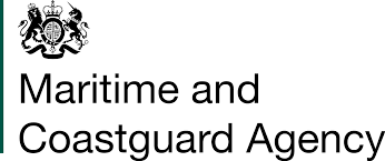contact
Lithium Battery Fires: A Growing Concern for Insurers

Lithium Battery Fires: A Growing Concern for Insurers
The world of superyachts continues to evolve, with cutting-edge innovations redefining luxury and functionality. Among these advancements, lithium-ion batteries have emerged as a game-changer, powering water toys, e-bikes, and various onboard systems with remarkable efficiency. However, this technological leap also introduces a serious, often underestimated threat—lithium-ion battery fires.
The Rising Risk of Lithium Battery Fires in Yachting
The yachting industry has seen a worrying increase in lithium-ion battery-related incidents. These fires not only cause extensive property damage but also pose severe safety risks to passengers and crew. Unlike conventional fires, lithium-ion battery fires are difficult to control and can rapidly escalate, leading to catastrophic outcomes.
This growing hazard has captured the attention of marine insurers, prompting them to reassess risk management strategies and tighten coverage requirements. Yacht owners who fail to implement adequate safety measures may find themselves facing policy exclusions or significantly higher premiums.
Furthermore, industry reports indicate that lithium-ion battery fires often start without warning, triggered by manufacturing defects, overcharging, or damage to the battery cells. Given that these batteries are widely used in everything from jet skis to high-end tenders, the risk is omnipresent.
How the Insurance Industry Is Responding
Recognizing the escalating risks, leading insurers have introduced stricter guidelines and policy adjustments to address lithium-ion battery safety. One significant development came in October 2023, when the Joint Hull Committee (JHC)—a key authority in maritime insurance—introduced a new clause outlining essential protocols for the safe use, storage, and charging of lithium-powered equipment aboard yachts. Compliance with these standards is now crucial for securing comprehensive coverage and mitigating fire risks.
Additionally, Pantaenius Yacht Insurance, a well-established name in the industry, has emphasized the necessity of proper lithium battery handling. While not mandating explicit policy changes, Pantaenius strongly advocates for stringent safety practices, reinforcing the industry’s shift toward proactive risk prevention.
Another leading insurer, Allianz Global Corporate & Specialty, has conducted in-depth research into the causes of lithium-ion fires and recommends a multi-layered approach, including thermal monitoring systems, fireproof storage, and advanced suppression technologies.
Changing Insurance Policies and Coverage Challenges
A concerning trend among marine insurers is the increasing reluctance to provide coverage for yachts equipped with lithium-ion batteries, particularly when insufficient safety measures are in place. The primary reasons include:
- Thermal runaway risks: Once ignited, lithium-ion battery fires are notoriously difficult to extinguish.
- Escalating damage potential: Fires can spread rapidly, endangering the vessel, passengers, and crew.
- Unclear regulatory framework: Inconsistent industry standards complicate risk assessment for insurers.
Some insurers have responded by excluding lithium-ion-related incidents from coverage or imposing higher premiums on yacht owners who fail to meet safety guidelines. These policy shifts underscore the urgent need for robust fire prevention strategies onboard.
Proactive Safety Measures: A Call to Action
To navigate this evolving insurance landscape, yacht owners, captains, and crew members must take proactive steps to enhance lithium battery safety. Investing in specialized lithium-ion battery storage and charging systems is no longer optional—it’s essential.
4 Best practices for mitigating lithium-ion fire risks include:
- Using fire-resistant storage containers to house lithium-ion batteries safely. See the solutions here.
- Implementing temperature and charge monitoring systems to detect early warning signs of failure.
- Establishing emergency response protocols to handle fire incidents effectively.
- Educating crew members on the risks and proper handling of lithium-ion batteries.
At Liiontek, we provide cutting-edge safety solutions designed to meet and exceed insurance and industry safety standards. Our fire-resistant storage and charging units align with JHC and insurer recommendations, helping yacht owners minimize fire risks while ensuring compliance with evolving regulations.
The Future of Lithium Battery Safety in Yachting
While lithium-ion technology presents undeniable advantages, it also demands a responsible approach to risk management. By adopting best practices, implementing proper safety infrastructure, and staying informed on insurance policy updates, yacht owners can safeguard their vessels, protect their guests, and secure uninterrupted adventures at sea.
As lithium battery technology continues to evolve, innovations in fire suppression and containment are expected to become key factors in future insurance policies. Advanced fire suppression systems, such as aerosol-based solutions and water-mist technologies, are being explored as viable methods for controlling lithium fires.
The message is clear: lithium battery safety is not a luxury—it’s a necessity. With the right tools and expert partners like Liiontek, a safer and more secure yachting future is within reach. Reed more from others sources here.



